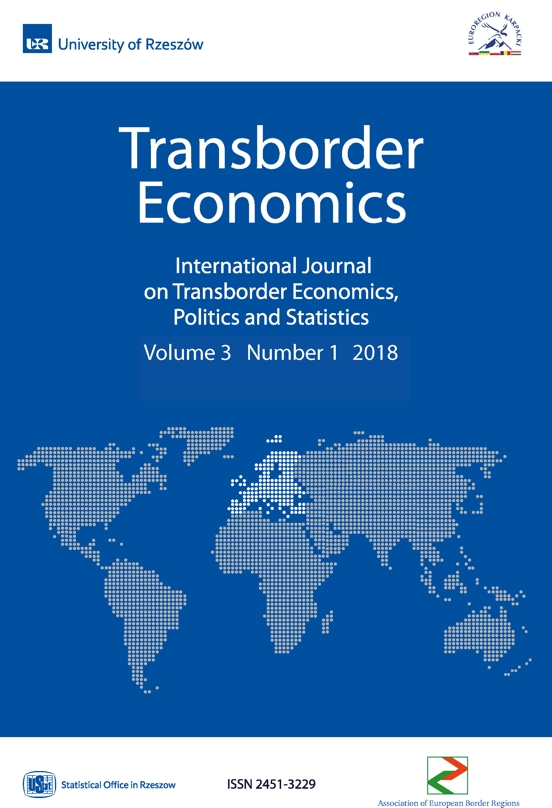Typology of micro and small countries in the light of transborder economics
Keywords:
small countries, transborder economy, cross-border processes, economic gravitation, official statisticsAbstract
The majority of economies in the world of today (over 200) are small economies (MMS). Today 96 of them have the political status of sovereign, independent states. All of them are the member-states of the United Nations. Over 50 small economies are the regions of some level of political autonomy, however they are officially or de facto politically dependent or politically interrelated with other countries. About 50 MMS are the economies that have the political status of exclaves or overseas territories of other countries.
In globalized world main prerequisite of social and economic policy of governments of MMS is the availability of pertinent information adjusted to the specificity of each particular small economy. Special attention should be paid to the production of sets of integrated data on political, social, economic and ecological environment, on the fields of economic gravitation and on transborder economies in which the MMS exist. The production and dissemination of such information for governments, social organizations and businesses is the duty of national systems of official statistics of the MMS.
Statistical agencies of small economies are insisted by international organizations to submit statistical data following exactly global, international standards that are adjusted first of all to the specificity and the needs of large countries. Those standards – methods, categories, metadata and data - are often difficult for direct implementing, hardly interpretable, sometimes useless or even misleading for SME. Social and economic attributes specific of small economies, especially those, that have the impact on information sources, methods of statistical monitoring and the information needs of national users of statistics, are analyzed. On the basis of those analyses the typology of small economies is proposed. The consequences of the specificities of different types of the SME for statistical methods and tools, for duties, functionalities and strategies of development of official statistics and the approaches to statistical capacity building for the MMS are discussed.
Downloads
Downloads
Published
How to Cite
Issue
Section
License
Copyright (c) 2018 TRANSBORDER ECONOMICS. International Journal on Transborder Economics, Finance, Politics and Statistics

This work is licensed under a Creative Commons Attribution-NonCommercial-NoDerivatives 4.0 International License.


